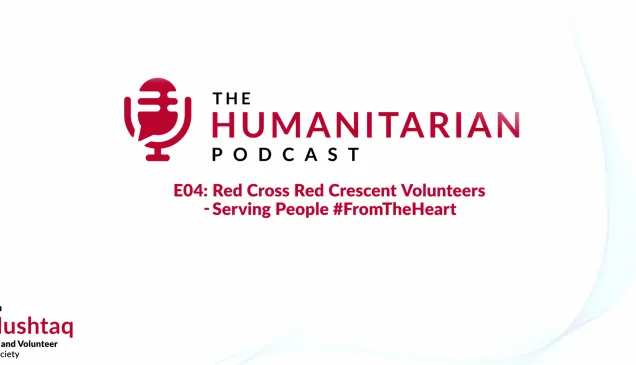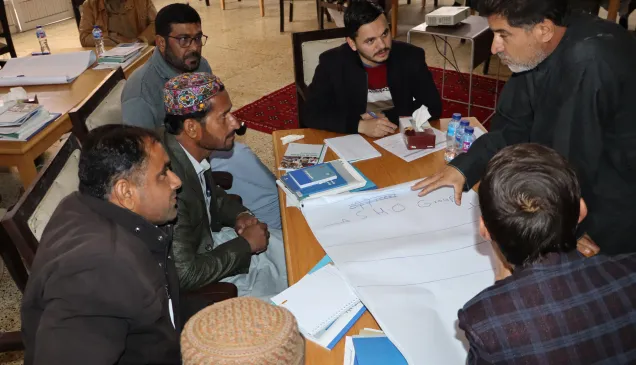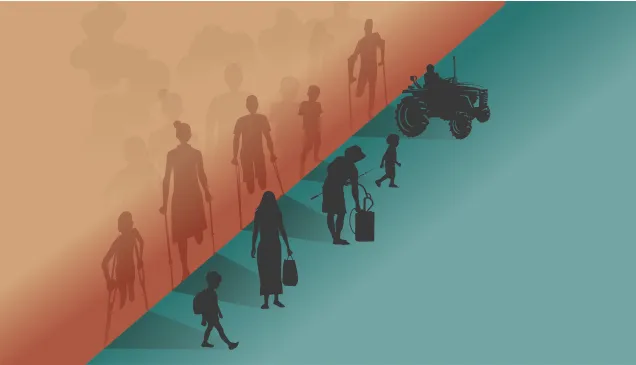Unsung heroes of Pakistan: Health-care workers taking risks to save lives
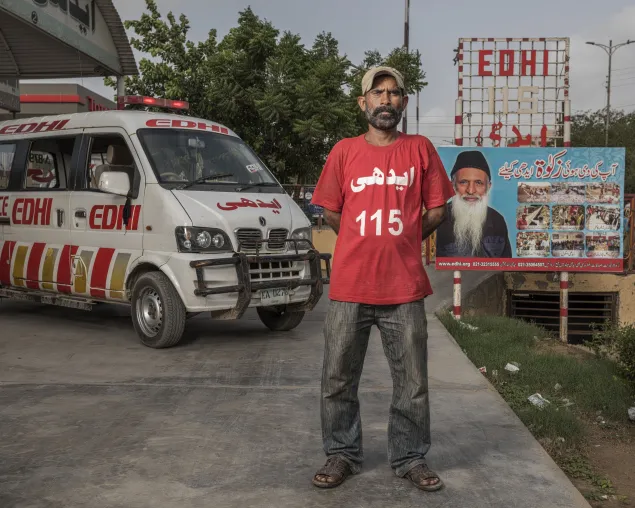
“Our ambulances were already riddled with bullets and there was no way I could use them. But I thought I could get the injured man into a taxi and to hospital. I started to make my way towards him, and that’s when a bullet pierced my leg and felled me.”
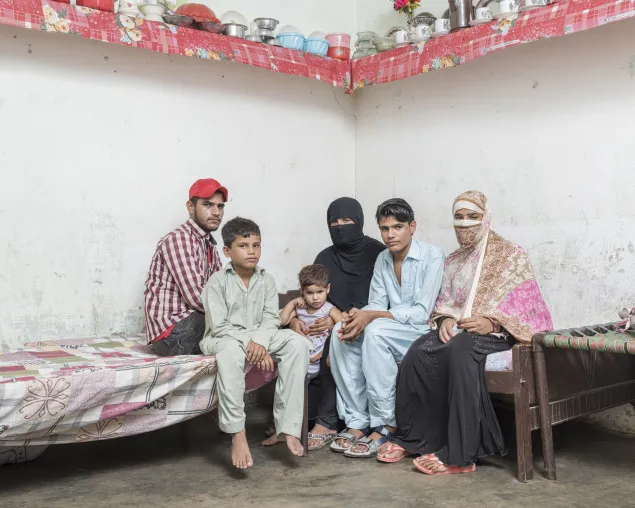
Shazia Lodhi (centre in burqa), widow of Misal Khan, with her children (from left to right) Faisal, Arslan, Mariam, Bilal and Kainat
“He was dead by the time we finally got him to the hospital. It took the
ambulance nearly 45 minutes to get to the scene of the accident. Misal
Khan had been hit by a truck, thrown from his motorcycle and received
serious injuries to his head. His death meant that I had to take my children out of school, and force them to find jobs.”
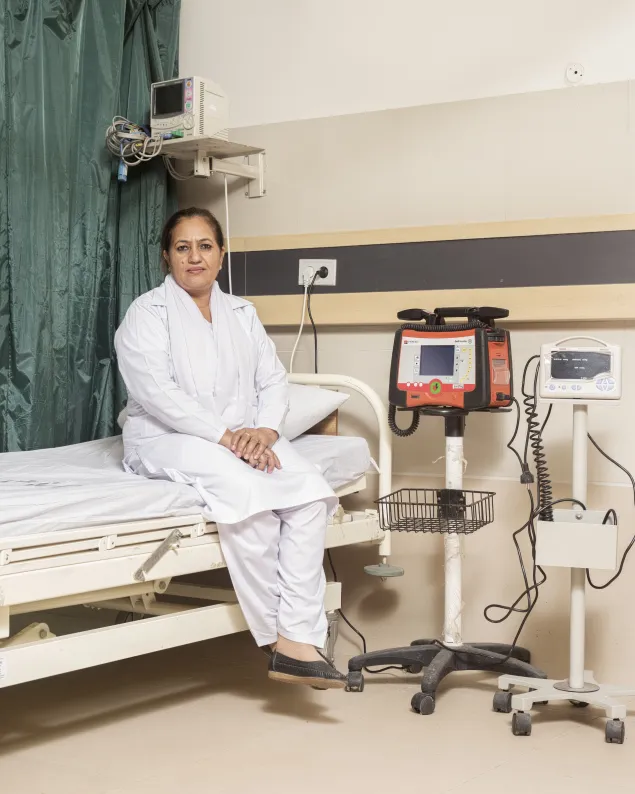
Daisy Nasreen, Head Nurse, JPMC Emergency Ward
“The first bomb had been placed directly outside the main entrance of the emergency ward and killed 18 people instantly. There was debris and dust everywhere and we were in complete shock from the sound and power of the blast.”
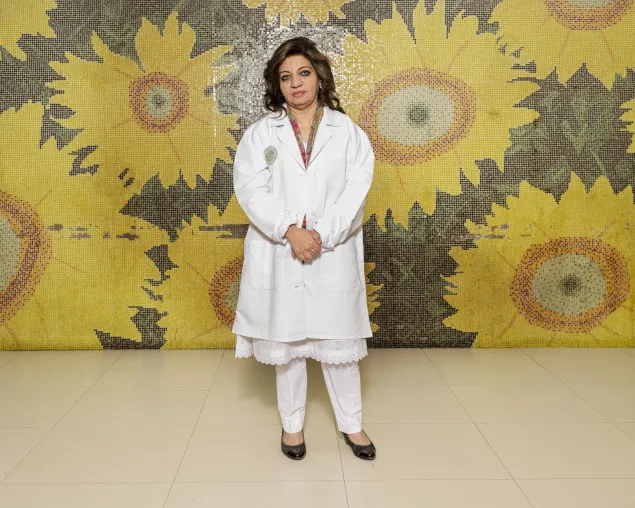
Dr Seemi Jamali, Director, JPMC Emergency Ward
“There were two bomb blasts in the city. The entire team of the hospital’s medical staff was here that day, dealing with the casualties in the aftermath of those attacks, when a bomb exploded right outside the main entrance, killing 18 innocent bystanders instantly.”
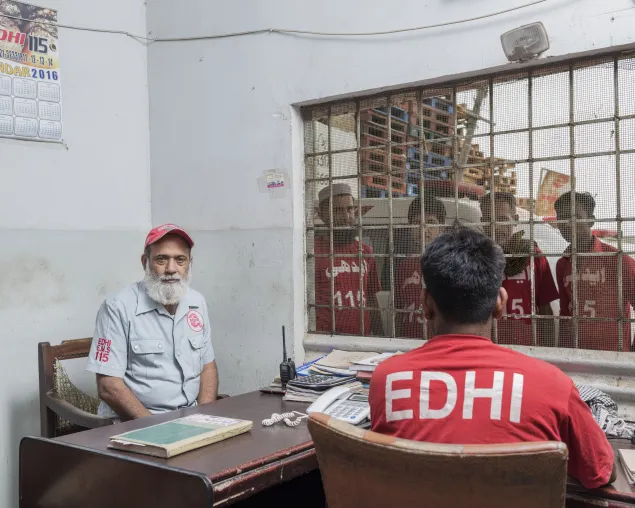
Mohammad Farooq, Baldia Town Station Head, Edhi Emergency Services
“As we turned the vehicle and tried to drive out of the area, a group of men starting hurling large glass bottles at us, one of which slammed into my face, tearing open my cheek. I was bleeding profusely, but managed to steer the ambulance to safety. My injuries meant that I had to be immediately hospitali zed. I received 18 stitches on my face and was in the hospital for about two weeks.”
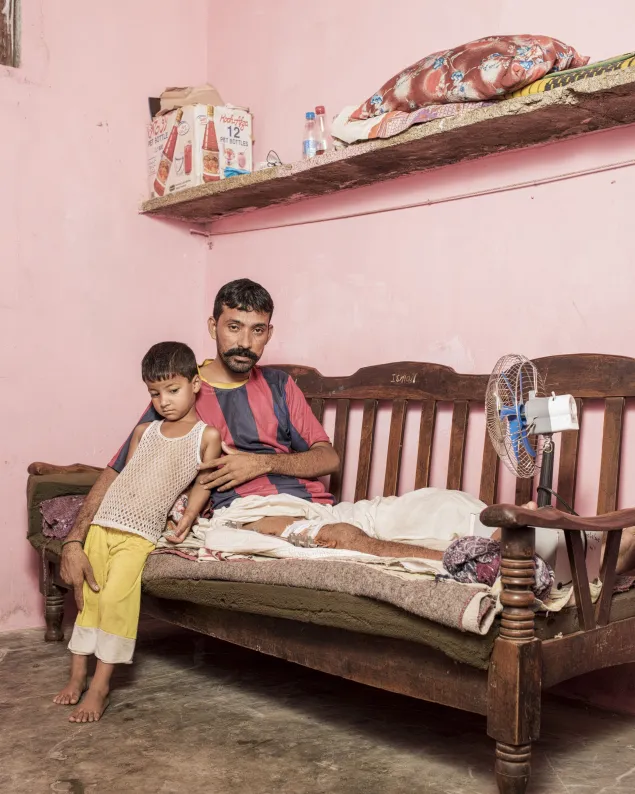
Talib Hussein, Security Guard
“I had no idea what had happened, other than there was a sudden pain, and large pools of blood. There was panic all around and eventually an ambulance was called. But it never came. We waited for what seemed an eternity, but no ambulance made it past the traffic. I was lucky to have made it to the hospital at all.”
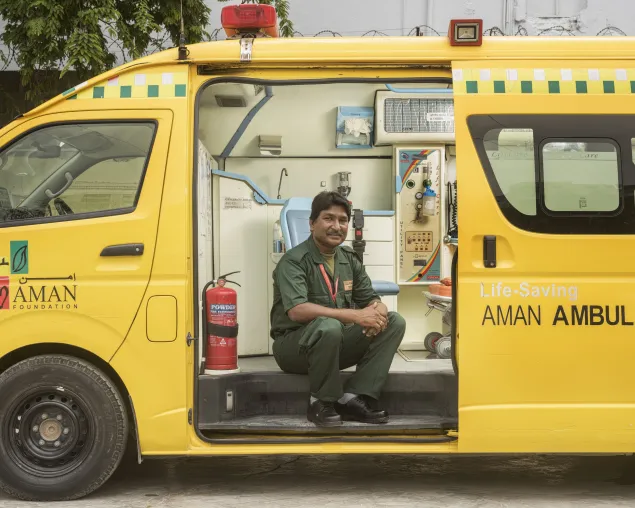
Sabir Christopher, Emergency Vehicle Operator, Aman Ambulance Services
“It was dark, the roads were largely empty at that time of night and we were driving at a normal speed towards the JPMC. Suddenly, I saw a man walk into the middle of the road and turn towards my headlights. At first I thought nothing of it, but then realized that he was armed and had guns in each hand. As we drove towards him, the ambulance lights now illuminating him clearly, he raised the weapons and began firing at us.”
Attacks against health-care workers, hospitals and ambulances disrupt health-care services and deprive people of life-saving treatment. In Karachi, Pakistan, these are some of the stories of health-care workers who've encountered violence while risking their lives to save others.
The ICRC's Health Care in Danger (HCiD) project aims at encouraging different stakeholders to improve the security and delivery of health care in armed conflict and other emergency situations.

